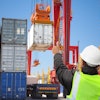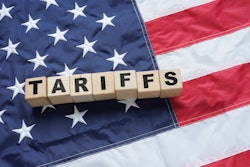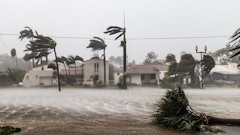
In the wake of the largest series of U.S. tariff hikes since 1930, a new study from Michigan State University (MSU) explores how this economic shock is reshaping global supply chains and offers a framework to help researchers and policymakers make sense of the chaos.
“Unlike previous trade wars, the 2025 actions came with extreme uncertainty,” says Jason Miller, lead author of the study and the Eli Broad Endowed Professor in Supply Chain Management at MSU. “We wanted to provide a framework to help researchers and practitioners make sense of what’s happening and what to expect going forward.”
Key takeaways:
· The paper outlines a theoretical framework around categories of costs such as adjustment costs, transaction costs, and the opportunity costs of responding too early or too late.
· While the study is anchored in supply chain theory, the authors emphasize that these disruptions have real societal consequences for households and consumers.
· Products with limited domestic production, such as bananas or pineapples, offer little room for substitution, which makes food prices especially vulnerable to trade shocks.



















